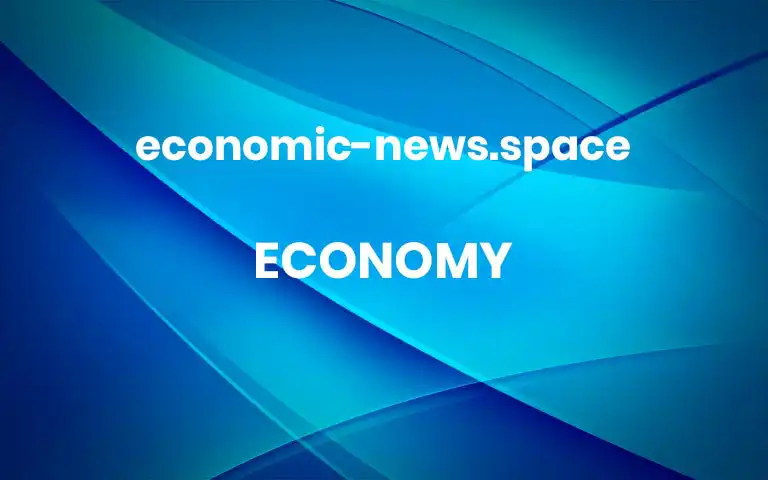REHOBOTH BEACH, Del. — Dogfish Head Craft Brewery is struggling to hire manufacturing workers for its beer factory and staff members for its restaurants in this coastal area, a shortage that has grown so acute that the company has cut dining room hours and is now offering vintage cases of its 120 Minute India Pale Ale as a signing bonus to new hires.The company is using its hefty social media presence “to get the bat signal out” and “entice beverage-loving adults” to join the team, Sam Calagione, the company’s founder, said on a steamy afternoon this month at Dogfish’s brewpub, which was already doing brisk business ahead of vacation season.Economic activity is expected to surge in Delaware and across the country as people who missed 2020 getaways head for vacations and the newly vaccinated spend savings amassed during months at home.Yet as they race to hire before an expected summertime economic boom, employers are voicing a complaint that is echoing all the way to the White House: They cannot find enough workers to fill their open positions and meet the rising customer demand.An April labor market report underscored those concerns. Economists expected companies to hire one million people, but data released on Friday showed that they had added only 266,000, even as vaccines became widely available and state and local economies began springing back to life. Many analysts thought labor shortages might explain the disappointment.Some blame expanded unemployment benefits, which are giving an extra $300 per week through September, for keeping workers at home and hiring at bay. Republican governors in Arkansas, Montana and South Carolina moved last week to end the additional benefits for unemployed workers in their states, citing companies’ labor struggles.President Biden said on Monday that there was no evidence that the benefit was chilling hiring. In remarks at the White House, he said his administration would make clear that any worker who turned down a suitable job offer, with rare exceptions for health concerns related to the coronavirus, would lose access to unemployment benefits. But school closings, child care constraints and incomplete vaccine coverage were playing a larger role in constraining hiring, the president said.He called on companies to step up by helping workers gain access to vaccines and increasing pay. “We also need to recognize that people will come back to work if they’re paid a decent wage,” Mr. Biden said.In tourist spots like Rehoboth Beach, companies face a shortage of seasonal immigrants, a holdover from a ban enacted last year that has since expired. But the behavior of the area’s businesses, from breweries to the boardwalk, suggests that much of the labor shortage also owes to the simple reality that it is not easy for many businesses simultaneously to go from a standstill to an economic sprint — especially when employers are not sure the new boom will last.Many managers are unwilling to raise wages and prices enough to keep up, as they worry that demand will ebb in a few months and leave them with permanently higher payroll costs. They are instead resorting to short-term fixes, like cutting hours, instituting sales quotas and offering signing bonuses to get people in the door.Some employers in the Rehoboth area, which The New York Times visited last year to take the temperature of the labor market, think workers will come flooding back in September, when the more generous unemployment benefits expire.At least 10 people in and around Rehoboth, managers and workers alike, cited expanded payments as a key driver of the labor shortage, though only two of them personally knew someone who was declining to work to claim the benefit.“Some of them are scared of the coronavirus,” said Alan Bergmann, a resident who said he knew six or seven people who were forgoing work. Mr. Bergmann, 37, was unable to successfully claim benefits because the state authorities said he had earned too little in either Delaware or Pennsylvania — where he was living in the months before the pandemic — to qualify.Whether it is unemployment insurance, lack of child care or fear of infection that is keeping people home, the perception that the job market is hot is at odds with overall labor numbers. Nationally, payroll employment was down 8.2 million compared with its prepandemic level, and unemployment remained elevated at 6.1 percent in April. Dogfish Head Craft Brewery is struggling to hire manufacturing workers for its beer factory and staff members for its restaurants.Alyssa Schukar for The New York TimesSam Calagione, center, the founder of Dogfish Head, said he did not want to think about the business the company would forgo if it cannot hire dozens of employees by the peak summer season.Alyssa Schukar for The New York TimesIn Delaware, Wawa gas stations sport huge periwinkle blue signs advertising $500 signing bonuses, plus free “shorti” hoagies each shift for new associates. A local country club is offering referral bonuses and opening up jobs to members’ children and grandchildren. A regional home builder has instituted a cap on the number of houses it can sell each month as everything — open lots, available materials, building crews — comes up short.“Demand was always going to pick up faster than supply in a lot of these pandemic-hit parts of the economy,” said Nick Bunker, an economist at Indeed. “There are readjustment costs.”National data hint that it is taking time for workers to reshuffle into new jobs. Openings have been swiftly increasing — a record share of small business owners report having an opening they are trying to fill — and quit rates have rebounded since last year, suggesting that workers have more options.Mr. Bergmann is among those who are benefiting. He said he had a felony on his record, and between that and the coronavirus, he was unable to find work last year. He struggled to survive with no income, cycling in and out of homelessness. Now he works a $16-an-hour job selling shirts on the boardwalk and has been making good money as a handyman for the past three months, enough to rent a room.Brittany Resendes, 18, a server at the Thompson Island Brewing Company in Rehoboth Beach, took unemployment insurance temporarily after being furloughed in March 2020. But she came back to work in June, even though it meant earning less than she would have with the extra $600 top-up available last year.“I was just ready to get back to work,” she said. “I missed it.”She has since been promoted to waitress and is now earning more than she would if she were still at home claiming the $300 expanded benefit. She plans to serve until she leaves for the University of Delaware in August, and then return during school breaks.Scott Kammerer oversees a local hospitality company that includes the brewery where Ms. Resendes works, along with restaurants like Matt’s Fish Camp, Bluecoast and Catch 54. He has been able to staff adequately by offering benefits and taking advantage of the fact that he retained some workers since his restaurants did not close fully or for very long during the pandemic.But he has also bolstered wages. The company’s starting non-tip pay rates have climbed to $12 from $9 two years ago. Mr. Kammerer has not been forced to raise prices to cover increasing costs, because business volume has picked up so much — up 40 percent this year compared with a typical winter — that profits remain solid.Other employers are struggling more. By the end of April, the Peninsula Golf and Country Club usually hired about 100 seasonal workers over the course of three job fairs. This year, after five fairs, it managed to hire only 40. Missing are the 20 or so students from abroad who would usually work on seasonal visas, but the club also cannot get people to come in for interviews.The clubhouse restaurant at the Peninsula Golf and Country Club in Millsboro, Del., sits empty because the company does not have the staff to open it for lunch.Alyssa Schukar for The New York TimesThe club might have to keep the snack shack at its wave pool closed this summer because of the labor shortage.Alyssa Schukar for The New York TimesBesides relaxing hiring rules and offering bonuses for employee referrals, the club is paying 10 percent to 20 percent more, depending on job title. But managers there do not think the wage increases sweeping their region are sustainable, nor do they think pay is what is keeping people from applying.“There’s no labor out there,” said Greg Tobias, the principal for Ocean Atlantic Companies, a business group that includes real estate development and the country club. “It’s not even a question of, are you paying enough money?”The sprawling clubhouse restaurant was empty on a sunny afternoon this month as golfers milled about. The company does not have the staff to open it for lunch. It might have to keep the snack shack at the club’s wave pool closed this summer if it cannot find more workers.Part of the problem, Mr. Tobias said, was that people had left the hospitality industry for the thriving local construction business. Ocean Atlantic’s related building company, Schell Brothers, had sales take off over the past year as people moved toward the beach — either because they were retiring or because the pandemic had prompted them to look for more space. Schell Brothers’s subcontractors could not double the sizes of its work forces overnight, and the company was concerned about running out of finished lots. Builders ran into material shortages.The company first raised prices by 15 percent to 25 percent to try to cool things down, but when the building backlog hit 18 months, it instituted caps to slow the rush of sales.“It’s almost like, anticapitalistic practices, but what would happen to our companies or employees if we ran out of finished lots would be worse,” said Preston Schell, the co-founder and chief executive of Ocean Atlantic Companies. While they could have pushed prices as high as demand would allow, they opted not to; it is hard to cut home prices down the road, Mr. Schell said, so it is better to undercharge during what he expects to be a short-term run-up.Building homes in Millsboro, Del. People have left the hospitality industry for the thriving local construction business, said Greg Tobias, the principal for Ocean Atlantic Companies.Alyssa Schukar for The New York TimesSales took off over the past year as people moved toward the beach, either because they were retiring or because the pandemic had prompted them to look for more space. Alyssa Schukar for The New York TimesSuch maneuvering could matter for economic policymakers from the White House to the Fed, as they keep a careful eye on inflation while vaccine-induced optimism and trillions in government spending fuel an economic rebound. If many businesses treat the summer bounce as likely to be short lived, it may keep price gains in check.At Dogfish Head, the solution has been to also temporarily limit what is on offer. The Rehoboth brewpub has cut its lunches, and its sister restaurant next door is closed on Mondays. Mr. Calagione said he did not want to think about the business they would forgo if they cannot hire the dozens of employees needed by the peak summer season.But as it offers cases of its cult-favorite beer and signing bonuses to draw new hires, the company seems less focused on another lever: lasting pay bumps. Steve Cannon, a server at Dogfish Head, can walk to what he regards as his retirement job. He said he was not thinking of switching employers, but several co-workers had left recently for better wages elsewhere.“There’s nobody,” said Mr. Cannon, 57. “So people are going to start throwing money at them.”When asked if it was raising pay, Dogfish Head said it offered competitive wages for the area. More




